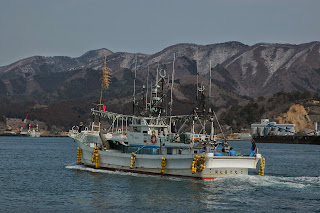In the unilateral construction of new
United States Marine Air Base in Henoko, Okinawa, the license of destroying
rock reef issued by Governor of Okinawa was expired at the end of March. The
government of Japan is ignoring the demand of Governor Takeshi Onaga to renew
the license, unilaterally interpreting the local law as not requiring license.
As the national government rejects persuasive effort to local government, rule
of law does not work in this issue.
One week after the decision of Supreme
Court that regarded the cancellation of license for landfill in Henoko by the
Governor as illegal, Ministry of Defense resumed the construction of new base
last December. The ministry dropped 228 concrete blocks into the sea for
settling fence on them to contain muddy water. Onaga has been criticizing the
ministry of its unilateral procedure without consent of local government.
The license for rock reef destruction is
different from that for landfill. A local law in Okinawa determines that a
construction causing change of landform of the seabed needs Governor’s license.
The Government of Japan argues that it does not need renewal of the license,
because Nago Fishery Cooperative, covering the coastal area around Henoko, has
abandoned the interest for fishery this January. Ministry of Defense ignored
the order of Governor to stop the construction late March.
Onaga realizes the activities of Japanese
government as significant violation of law. There are two possible actions from
Onaga. One is to file a lawsuit against the construction by Japanese
government. Governor sets right for fishery resources on specific sea area. Onaga
argues that the right cannot be cancelled only with renunciation by fishermen’s
cooperative and it remains.
Another action would be withdrawal of license
for landfill. The cancellation of that license in 2015 was based on illegality
of the issuance by former governor. The withdrawal would be stemming from
“significant violation” of law by Japanese government continuing the
construction without renewal of license. Onaga thinks that the reasoning will
stand, if the construction is continued after expiration of the license.
Japanese government maintains its argument
that the construction is legally right even after the expiration. The
government is taking steps forward to seawall construction this month. Chief
Cabinet Secretary, Yoshihide Suga, reiterates that Japan is a rule-abiding
country and stresses legitimacy of the policy for relocating Futenma Marine Air
Base to Henoko. However, it is Japanese government that ignores local law in
Okinawa, which is legislated with the provision on autonomy in Constitution of
Japan.

No comments:
Post a Comment